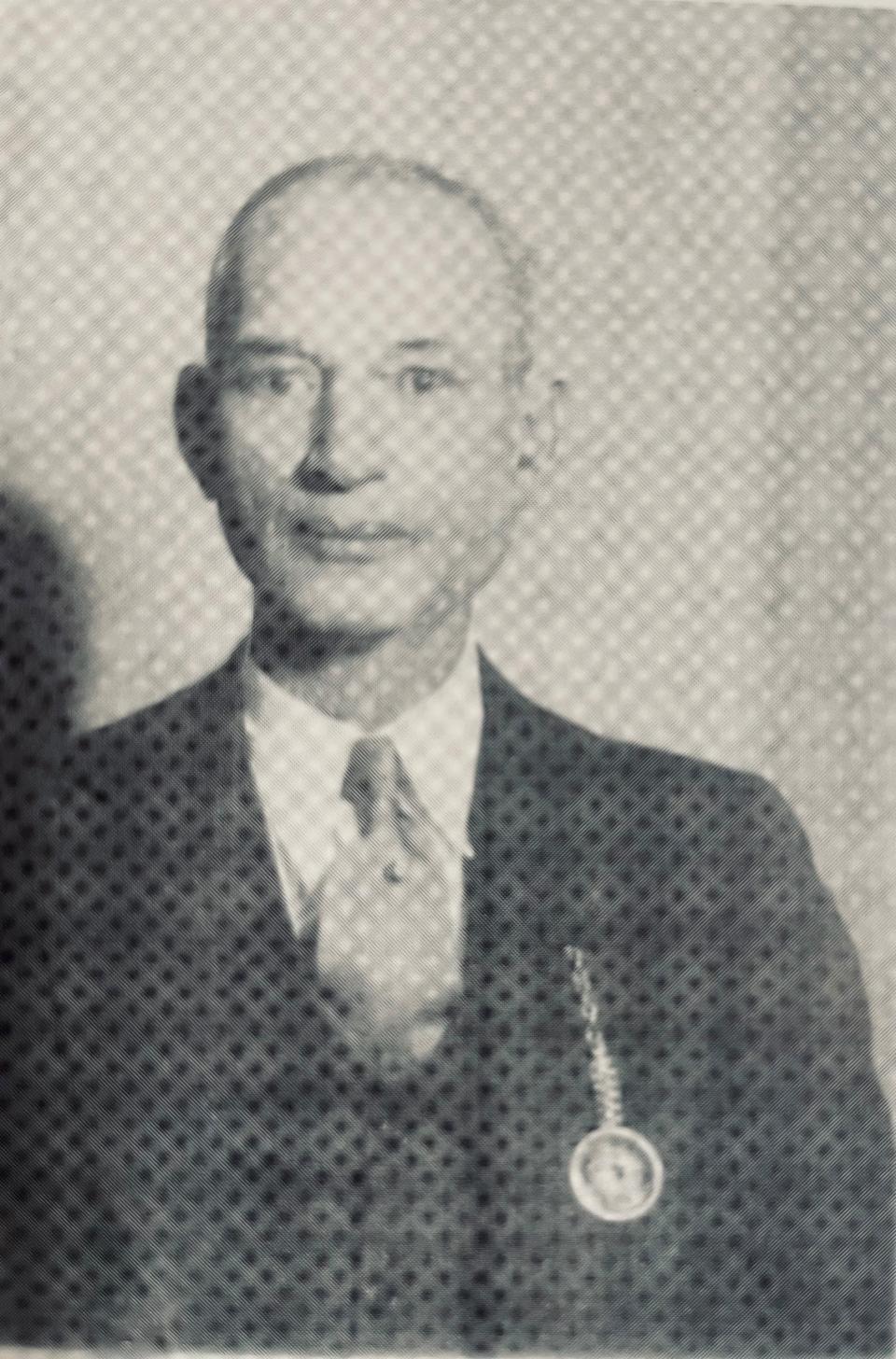Righting the Past: James Goldstucker, famed baseball manager and businessman, dead at 75
Editor's note: This is the third in a series of historical obituaries written today to honor the men and women of the past who were denied the honor at the time of their death because of discrimination due to their race and/or gender.

James “Jim” Goldstucker, a respected Pensacola businessman and baseball team manager, died on Jan. 28, 1946, in Montgomery, Alabama. He was 75 years old.
Mr. Goldstucker is remembered for two impressive accomplishments: co-owning a chain of funeral homes with his brother William and serving as the manager of the Negro League baseball team, the Pensacola Giants.
Perhaps Mr. Goldstucker got his enterprising spirit from an ancestor. According to family lore, an elder, Willie, was ordered to hide his horses from approaching Union troops during the Civil War. He did. In fact, he and the horses hid out in Pensacola until the war ended. Given his possession of the horses, he sensibly opened a livery and stable business.
Eventually, James and his brother, William, took over the family business and expanded it into Goldstucker Brothers Funeral Home. The funeral home was located at 32 N. Tarragona Street from 1908 through 1910, alongside other African-American-owned businesses. Then, in 1911 the Goldstuckers moved to 214 E. Chase Street and remained at that address into the 1950s.
What is Righting the Past project?Their history wasn't just forgotten, it was buried. Today we tell their stories.
Righting the past: War veteran and prominent citizen, John Sunday is dead at 86
Righting the past: Rev. L. B. Croom, civil rights activist, dies at 73
A visitor described Goldstucker’s Chase Street facility in 1911: “There is no place of business of this kind in the city to exceed it. The building is pebble dash outside, and two-story, with water, gas, electric light fixtures in all parts of the building. Telephones are also at hand. There are 10 living rooms upstairs. They also have about 12 horses, with a special pair for their funeral car, with [a] harness that cost $500. This is the only building of its kind owned by a colored man in this city. Their many friends wish them a great success.”
The Goldstucker brothers also opened funeral homes in the Alabama cities of Mobile, Montgomery, Evergreen and Troy, we well as in Panama City, Florida.
More than a successful business, the Goldstucker Brothers Funeral Home was a vital institution in Pensacola’s African American community. The African American funeral industry has great cultural significance. Before the Civil War, funerals for the enslaved were important communal events conducted by the Black community. After the abolition of slavery, African American entrepreneurs, like the Goldstuckers, established funeral homes across the American South. There was great pride in being able to serve the Black community and honor the diverse cultures, rituals and practices. The owners of these businesses went on to become revered leaders in their communities.
James Goldstucker’s baseball career was his other noted accomplishment. In the early 1900s, he was the manager of the Pensacola Giants, a team that played across the country. A Pensacola Journal article from June 24, 1911, notes that the 14-member team and its manager were preparing to take a 4,000-mile road trip to visit cities like Memphis, Little Rock, St. Louis, Louisville, Kansas City, French Lick, Indianapolis, Evansville, Cincinnati and Cleveland.
In 1920 the Giants became part of the Southern Negro League and continued playing into the 1940s. At one point, the team was owned by Eli S. Cobb, a prominent Black Pensacola physician.
Goldstucker was part of a thriving tradition of Black baseball in Pensacola. By the time Negro League Baseball came to town, Pensacola’s teams included the Pensacola Giants, the Pepsi-Cola Stars, and the Pensacola Seagulls. The Seagulls went on to become our city’s most famous African-American baseball team, playing against the Brooklyn Dodgers in the late 1940s (during the Jackie Robinson years).
Like the rest of the country, Pensacola was segregated during this time. It was a shameful period in our history. But when we listen to the stories told by the players and fans of Pensacola’s Black baseball teams, we hear how baseball could be, at times, a unifying force. Legion Field, built in 1911 with segregated seating, hosted both Negro Southern League and White Major League Baseball teams. White residents watched the Seagulls play, and African American residents attended white games, though they watched from separate grandstands.
Goldstucker married Mary “Mae” Neal in 1916. He was active in the Knights of Pythias, a secret fraternal organization. He founded the Goldstucker Burial Association and the Christian Benevolent Burial Association and served as president of the Goldstucker Funeral Home and the West Florida Casket Company. The Goldstuckers eventually moved to Montgomery, Alabama. James Goldstucker died at his home in 1946. The local newspaper noted that he was fondly remembered “by both colored and white … as the ‘father of all burials.”
What we do know is that James Goldstucker’s life mattered. It mattered because his story sheds light on how our African-American ancestors approached death and how they lived life. And it mattered because James was a human being with the hopes and dreams and gifts and flaws that all humans possess. May he and those who loved him rest in peace.
This article originally appeared on Pensacola News Journal: James Goldstucker, famed baseball manager and businessman, dead at 75

